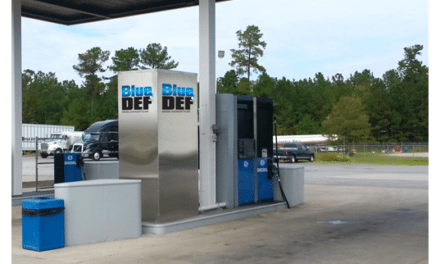A coalition of trucking industry groups warned the D.C. Council that provisions in the recently introduced Sustainable D.C. Omnibus Act of 2013 would have “significantly harmful effects on the District’s economy and on the quality of life of District residents.”
The provision would ban registrations of new diesel-powered vehicles: commercial trucks, buses, automobiles and fire trucks after 2017. This ban, because of interstate registration compacts would effectively outlaw any new diesel-powered vehicles from crossing the District line, according to a statement issued by the American Trucking Associations (ATA), based in Arlington, Va.
“We’re very concerned that this provision, which is unnecessary to achieve the goals of the overall bill, would have a number of adverse effects on the residents and businesses in our nation’s capital,” said Bob Pitcher, vice president of state laws for ATA. “If enacted as written, there will be serious disruptions to the supply chain for DC – which receives the vast majority of its good via truck.”
In a letter to the Council, ATA along with the American Moving and Storage Association, Truck Renting and Leasing Association, Maryland Motor Truck Association and Virginia Trucking Association, warned of several possible outcomes of the proposal, all of them negative.
“Most likely, the District will find itself not benefitting from advances in safety and emissions technology more found on newer trucks, meaning progressively older and older vehicles will be delivering to the city,” Pitcher said. “Shippers may also choose to receive smaller, more frequent deliveries in smaller gasoline-powered vehicles … many, many gasoline-powered vehicles to add to one of the nation’s already most congested cities.
“However, it may be as time goes on that carriers may simply choose not to send trucks into the District at all,” he added. “While inconvenient for District residents, the ban on diesel trucks will certainly be a boon for the economies of Maryland and Virginia who stand to benefit from D.C. residents looking elsewhere for essential goods.”
In 2012, trucks moved 68.5% of all U.S. freight by weight, and delivered 100% of all consumer goods in the country, ATA said in its statement.
“We encourage the D.C. Council to drop this provision in order to safeguard the economy and quality of life of their city,” Pitcher said.









